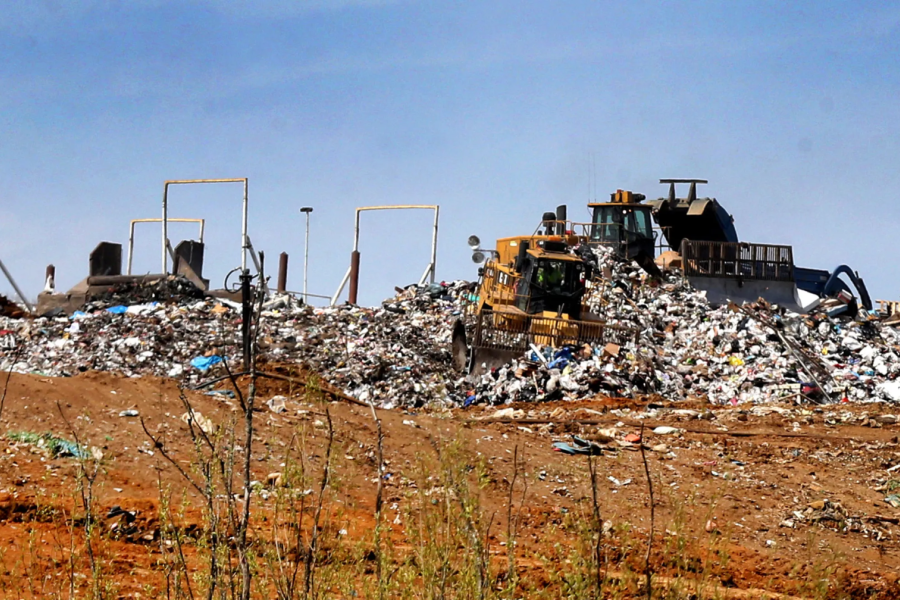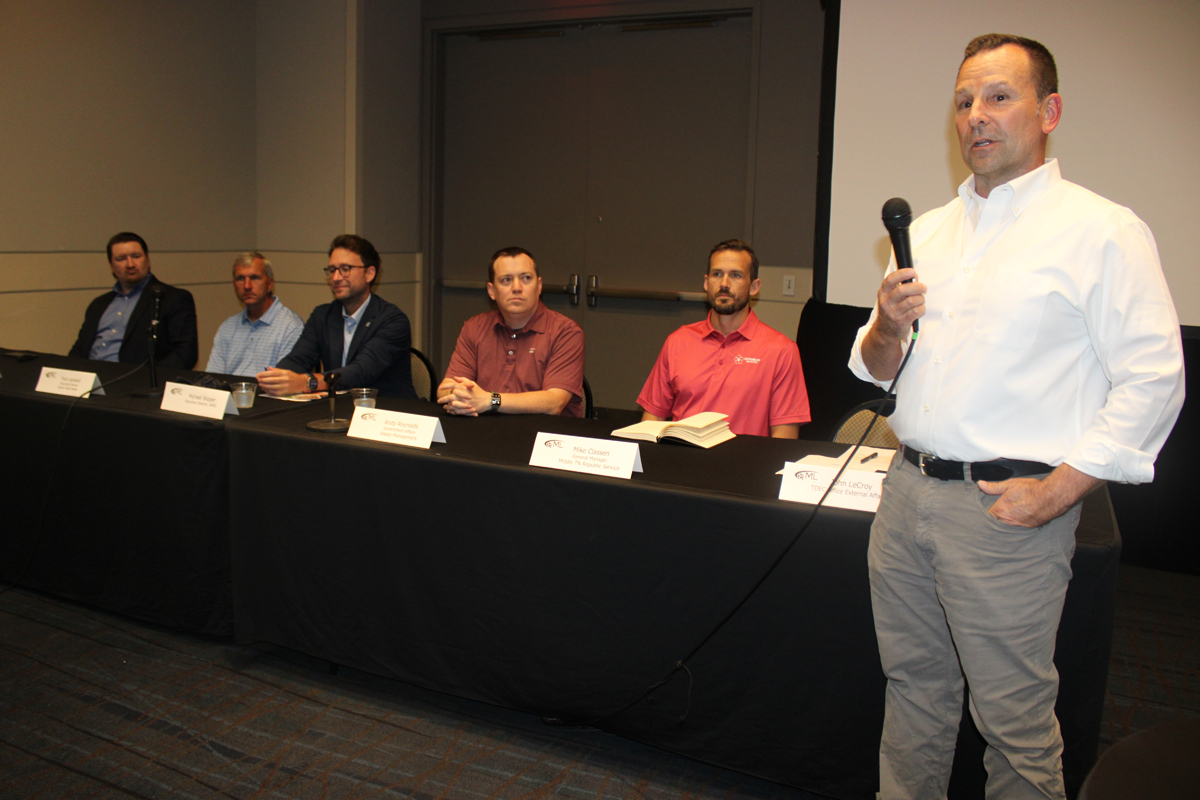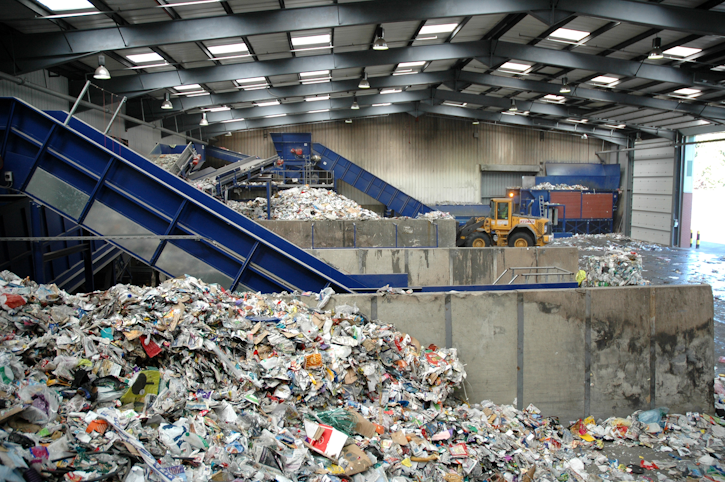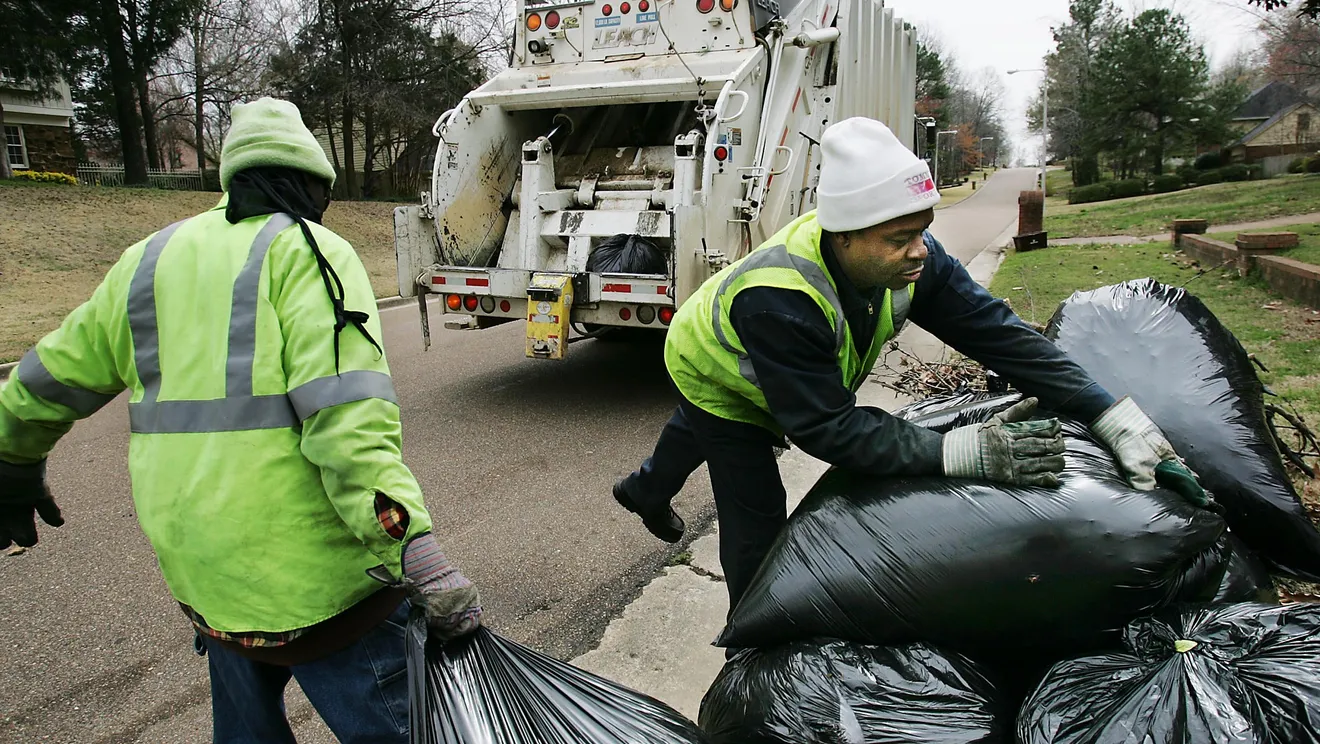Solid waste disposal a growing, statewide issue

By KATE COIL
TT&C Assistant Editor
With an increasing population generating more trash and more than a dozen of the state’s landfills set to close their doors in the next decade, solid waste officials are hoping to energize the conversation about waste disposal in Tennessee.
A panel discussion on how cities can help shape the future of solid waste in Tennessee, titled “Talkin’ Trash – Landfills: Running Out of Space,” was held at TML’s 84th Annual Conference in Knoxville to discuss solid waste solutions.
CAPACITY IN CRISIS

Jeremy Hooper, environmental consultant with the Tennessee Department of Environment and Conservation (TDEC) Solid Waste Division, said many of the landfills in Middle Tennessee are expected to close within the next decade.
“We’ve had a lot of discussion about capacity concerns, and what is going to happen when they (landfills) close down,” Hooper said. “In order to increase capacity – you have to be able to expand. There have been attempts to obtain expansions permits but have been denied at the local level. Overall, the state of Tennessee has a lot of capacity, but that capacity is dwindling in Middle Tennessee. There are concerns [those landfills] will not be able to expand to address that. The concern then becomes what happens to that waste? If those landfills close down, that waste is still being generated and still has to go somewhere. Then the problem cascades out to East and West Tennessee.”
If Middle Tennessee communities send their waste to other parts of the state, Hooper said not only will the fees those communities have to pay to dispose of their waste increase but also the capacity of those other landfills will decrease. This puts the state a path of having an increasing amount of waste with nowhere to put it.
Mike Classen, general manager of Middle Point Landfill, said the situation is known in the waste industry as a “disposal capacity crisis.” On average, he said it can take four to five years to get a landfill expanded from the engineering and environmental studies needed to approval, which is further complicated by the fact that many residents and communities don’t want landfills near them or don’t even want to bring up such a controversial topic.
“What happens is as the disposal sites closer to population centers get full, you have to move farther and farther out at greater and greater cost and risk to your citizens,” Classen said. “There is difficulty getting landfills expanded and permitted, because of a regulatory or State Code issue. There are a couple of competing parts of state statute that effectively give local communities veto power to prevent landfills in their jurisdiction or from expanding.”
Michael Skipper, executive director of the Greater Nashville Regional Council (GNRC), said at present 91% of Middle Tennessee’s solid waste is disposed of in Middle Tennessee, but with large landfills like Middle Point set to close without expansion, Middle Tennessee communities may have to search elsewhere for disposal sites.
“In the decade between 2010 and 2020, we added 32,000 new Middle Tennesseans to our population,” Skipper said. “Between now and 2045, we will see a population increase of about 37% with a 41% projected increase in municipal solid waste. The population accelerating is putting pressure on us, but there are other problems. One is that we are generating, on average, 20% more waste than the average American, roughly an extra pound per person per day in Middle Tennessee.”
DIVERSION TACTICS
Skipper said another problem is that Tennessee is not recycling enough, which could divert some space from landfills. Classen agreed, saying alternate technologies other than landfills need to be considered, such as recycling and composting that diverts high-value material on the front end rather than wasting landfill space.

Classen said Tennessee was recently ranked the third worst state for recycling and that perhaps a shift needs to happen in making recycling less of a partisan issue and more about responsible infrastructure use.
“It’s easy to say you want to divert more, but you have to have a place to take the material,” he said. “Recycling is also a commodities market. You have to have a market to sell that material to. You must have trucks and drivers willing to transport that material. One of the things state legislators have been responsive to is incentivizing that infrastructure, such as creating grant programs for trucks and recycling containers. Smaller communities are not going to be able to profit from recycling otherwise.”
Environmental regulations, legal challenges, and politics have also driven landfills from being smaller and publicly owned into larger, privately-owned facilities. Andy Reynolds, government and community affairs manager for Waste Management, said the negative environmental impacts landfills had prior to the environmental regulations in the 1970s as well as solid waste issues across the state in the 1990s have also created an image issue.
“The waste industry has come a long way in the last 30 years in terms of technology and environmental stewardship, but I think there is a disconnect between public perception between what landfills used to be, what they are currently, and what the future is and needs to be,” Reynolds said. “When we go to a solid waste board and ask for an expansion, all the media coverage and the community response is based on what an old facility expansion would have looked like from the 1990s. Communities have a visible dump ingrained in their memory, and you have to overcome the perception of historic facilities no longer in use and practices no longer in play.”
Reynolds said the waste industry is seen as a “necessary evil,” and that communities often vote to not expand a landfill but then have no alternative in place for what to do with waste.
“We have to do a better job of educating and communicating this is what waste disposal actually looks like,” he said. “We have to look at what has worked in other regions, what hasn’t worked, and what maybe worked in another region but why it may not work as well in Tennessee as a whole.”
REGIONAL SOLUTIONS
Classen said many communities don’t think about how their own decisions around solid waste can affect other cities.

“Waste is a regional problem that requires a regional solution,” he said. “If your community thinks ‘I can’t take care of my own. I have to find somewhere else to put it,’ you are putting that waste on another community, and usually paying for that privilege. We must look at this zooming out rather than every community vying for themself.”
On the other hand, Skipper said it can be hard to get one community to accept waste from another.
“It’s hard to get a community to accept a solid waste facility when it seems like it’s happening out of nowhere,” Skipper said. “With any type of development that is controversial, you need to get ahead of it, think about what type of land is suitable for what type of facility, and have local governments come in to make sure the proper policies are in place. There needs to be broader conversation about what facilities we need and what type of land is suitable for these facilities.”
